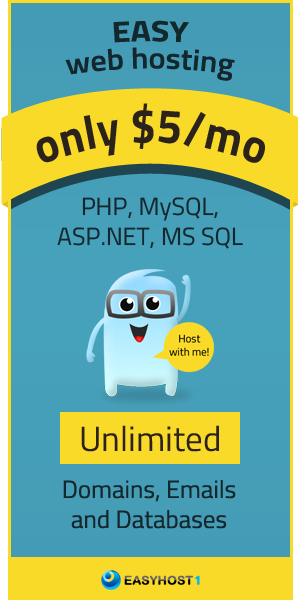Over the past several years there has been a boom in domain name speculation, and as a result, it is very possible that the domain name you want is no longer available. If you have searched for every possible domain name you can think of, only to find that none of them are available, it may be time to think about purchasing an existing domain name from a domain name reseller or individual owner. The fact that a great majority of domain names have been registered as investments, means that there are a number of excellent domain names for sale over a wide price range. In order to get the name you want, when you want it, and at a price you can be comfortable with, consult the HostSearch Domain Name Buyer's Guide.
Domain Name Buyer's Guide
Buying a Domain Name from a domain reseller
or individual owner can be a difficult, costly procedure,
which is why we at HostSearch have come up with some tips
on the domain buying process, and a step-by-step guide to
save you time and money.
Tips When Buying a Domain Name
- Remain Anonymous
When purchasing a domain name, it is essential to remain as anonymous as you can throughtout the entire process, in order to keep the price as low as possible. Domain names do not have fixed prices, and therefore the price of a domain name comes entirely from negotiations between buyer and seller. - Do Not Disclose That You Plan to
Develop a Site
If a domain name reseller or individual knows that you plan to develop a web site, specifically a commercial website, the price of your name will skyrocket, and you could end up paying five to ten times the market value for your domain name. - Do Not Disclose Your Full Name or Personal Information It is extremely easy for someone to find out a great deal of information concerning you and your personal financial situation over the Internet. Therefore, it would be a good idea to create an alias web-based email address to conduct your negotiations.
Step One: Is the Domain You
Want For Sale?
The first step in the domain purchasing
process is determining whether or not the domain name
you want is for sale. In order to obtain this information,
try visiting the site in question. When you visit the
site, there are a number of possible results, which
are covered individually below:
- You discover a functioning,
operational site.
If this is the case, it is very likely that the domain name is not for sale, however, you may still want to write an email to double check. - You discover a "For Sale"
page.
This is a good sign, as it means the name is available; however, before you put in a bid you should do some research concerning the market value of the domain name, which could save you a quite a bit of money. - You discover a page inviting
you to join a domain broker or auction site to bid
on the name.
This is also a good sign, as it means the name is available, but again, before you put in a bid do some research on the market value of the name. - You discover a generic "bookmark"
page, from a domain registrar.
In this case you will have to conduct a WhoIs Search to determine the owner of the name, and then contact him/her by email.
Step Two: Creating a Budget
After you have determined the availability
of your desired domain name, the next step is creating
a budget for the purchase of your name, and getting
a reliable estimate of its value. You can get a decent
estimate of the value of a domain name by getting it
appraised online for a small fee. Another way of creating
a budget for purchasing domain names is to make an estimate
of how much the name means to you, and in commercial
applications, your business. Regardless of how high
or low you set your budget, it is extremely important
to abide by it. Getting caught in a bidding war for
a domain name is a great way to end up paying way too
much for your domain name, especially when there are
plenty of good domain names available for purchase.
Step Three: Deciding Where to
Buy
After you have decided to purchase
a domain name, you need to decide where you are going
to purchase it from. There are several methods of purchasing
a domain name, including private sales, through a domain
broker, or via auction. Each of these methods has a
variety of advantages and disadvantages, which we have
broken down for you below.
- Private Sale
Private sales are the most complicated way of purchasing a domain name, and also the most risky. That being said, private sales can also be the cheapest way of purchasing a domain name, and are not subject to comission fees. Think twice before you try to purchase a domain name privately, because you will be responsible for transferring the domain name, and will also have to deal with how to arrange payment, escrow, etc.
- Negotiated Sale via Domain
Broker
This is probably the most convenient way of purchasing a domain name, as you will be guided through the entire process, and will also be able to remain anonymous throughout. However, some domain brokers charge a fee for buyers. In addition, the purchasing process is likely to take a long time, and you will probably have to make the initial offer, which puts you at a disadvantage. If you do decide to use a domain broker, make sure to bid low, and increase your bid in small increments.
- Sale via Auction
This is probably the riskiest way of purchasing a domain name, but can result in a low cost, quality domain name. With domain auctions, you must be careful not to get caught up in a bidding war, as you can never be sure that the other bidders are truly interested or not. In addition, most domain auctions require some sort of membership, and can take a long time to complete transactions.
WhoIs Searches
WhoIs Searches are the best way for you
to find out contact information about any registered .com,
.net, or .org domain name.
If the domain name you want was registered with Network Solutions, a WhoIs Search will not provide you with the email address of the domain name owner. In this case you will have to use the administration contact email for your inquries. A number of domain resellers use their WhoIs Search ID's to display the availability of their domain name, so if you get a WhoIs ID like this: BuyThisDomainName@anymail.com, you can move along to the bidding process.



